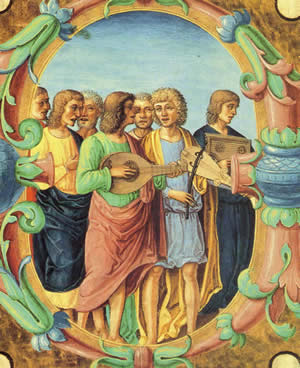Ilankai Tamil Sangam30th Year on the Web Association of Tamils of Sri Lanka in the USA |
||||
 Home Home Archives Archives |
Of Eunuchs and Defense Analystsby Sachi Sri Kantha, November 8, 2010
As China and Chinese culture seems to be in vogue now under President Mahinda Rajapaksa, it may be pertinent to refer to the eunuch service in Chinese history. A recently published paper in Anthropological Science journal notes in its introduction,
There appears a passage in the Bible, which ascribes three reasons for the presence of the eunuch (castrated man) among us. “For there are eunuchs who have been so from birth, and there are eunuchs who have been made eunuchs by men, and there are eunuchs who have made themselves eunuchs for the sake of the kingdom of heaven.” [Matthew, 19:12] In translating this passage, we can categorize three types: (1) congenital eunuchs (obligative), (2) circumstantial eunuchs (facultative), and (3) obstinate eunuchs. Another recent publication, entitled ‘Modern-Day Eunuchs’ also identifies a fourth type, voluntary eunuchs, men who “go to such extremes as self-castration in order to achieve eunuch status’.
The origin of the word ‘eunuch’, derives from eunoukohs (Greek), which literally means ‘bed-chamber attendant’ (eune = bed). The Oxford English Dictionary provides the following three meanings for this word.
All these three meanings seem applicable to the individuals, who identified themselves as defense analysts in Sri Lanka and India. This analogy was based on their behavior, during 1985 to 2009. Some of them found employment as ‘harem’ attendants to the Court rulers of Colombo. Almost of all them (with a few notable exceptions, like late Taraki Sivaram) sang in alto voice about the LTTE terrorism and the need for decapitation of Velupillai Prabhakaran. As long as they sang the same tune that was promoted by the Court rulers of Colombo, they were not discriminated against, irrespective of which country, creed or ethnicity they belonged to. For the record, I list more than 20 of their names alphabetically. Iqbal Athas Susantha Goonatilake Rohan Gunaratna Col. R. Hariharan (from India) Rajan Hoole Ratnajeevan Hoole Bandula Jayasekara Sunil Jayasiri Dayan Jayatilleka D.B.S. Jeyaraj H.L.D. Mahindapala Keith Noyahr Jehan Perera Lucien Rajakarunanayake K.T. Rajasingham Narasimhan Ram (from India) B. Raman (from India) K.Sritharan Jayadeva Uyangoda Gamini Weerakoon Lasantha Wickrematunga (deceased in 2009) Rajiva Wijesinha While reading the muck written by these defense analysts in the past, I was delighted by American cartoonist J.B. Handelsman who had anticipated this breed. His cartoon appeared in the Playboy magazine of September 1978, which I reproduce nearby. Of the three types of eunuchs that I distinguished in the first paragraph, courtesy the Gospel of Matthew, one can infer that almost all members of the defense analysts breed belonged to the facultative and obstinate types. While Sinhalese can be categorized as obstinate eunuchs [“who have made themselves eunuchs for the sake of the kingdom of (Sinhalese) heaven”], non-Sinhalese may belong to facultative eunuch type. Few weeks ago, the AFP news from Colombo (Oct. 20, 2010), announced that Sri Lanka is raising defence spending by six percent. To quote,
What was glaringly missing in this announcement was that, what percentage of 200,000 army personnel were Sinhalese? The alto voices of so-called defense analysts have gone silent now. It seems they have been emasculated. Why? For a proper evaluation of 1.92 billion [1192 million] defense spending in 2011, one should check the base figure of what was Sri Lanka’s defense spending in 1985. It was 131 million. In 1978, Sri Lanka’s defense spending was a puny 12 million. [Source: Statesman (Calcutta), May 26, 1985]. So many things have been written about the wily Prabhakaran. But, what has been omitted is of relevance now. He singlehandedly created the careers of this modern-day defense analysts-eunuch breed!
Cited Sources Eng JT, Zhang QC, Zhu H: Skeletal effects of castration on two eunuchs of Ming China. Anthropological Science, 2010; 118(2): 107-116. Jenkins JS: The voice of the castrato. Lancet, 1998; 351: 1877-1880. Wassersug RJ, Johnson TW: Modern-day Eunuchs – motivations for and consequences of contemporary castration. Perspectives in Biology and Medicine, 2007; 50(4): 544-556.
|
|||
|
||||

 In an illustrating article to Lancet journal, Jenkins noted, “the most intriguing reasons for prepubertal castration was to be found in Italy, where from the end of the 16th century it was carried out to preserve the male unbroken voice into adult life.” He also explained that the origin of castrati in the 16th century Rome was linked to the development of complex polyphonic church music. As there was a “Papal injunction against women singing in public”, male castrati became the obvious choice. “By 1640, castrati were members of all the main choirs of Italy, and they continued to take their place in the Papal chapel for over three centuries.”
In an illustrating article to Lancet journal, Jenkins noted, “the most intriguing reasons for prepubertal castration was to be found in Italy, where from the end of the 16th century it was carried out to preserve the male unbroken voice into adult life.” He also explained that the origin of castrati in the 16th century Rome was linked to the development of complex polyphonic church music. As there was a “Papal injunction against women singing in public”, male castrati became the obvious choice. “By 1640, castrati were members of all the main choirs of Italy, and they continued to take their place in the Papal chapel for over three centuries.”